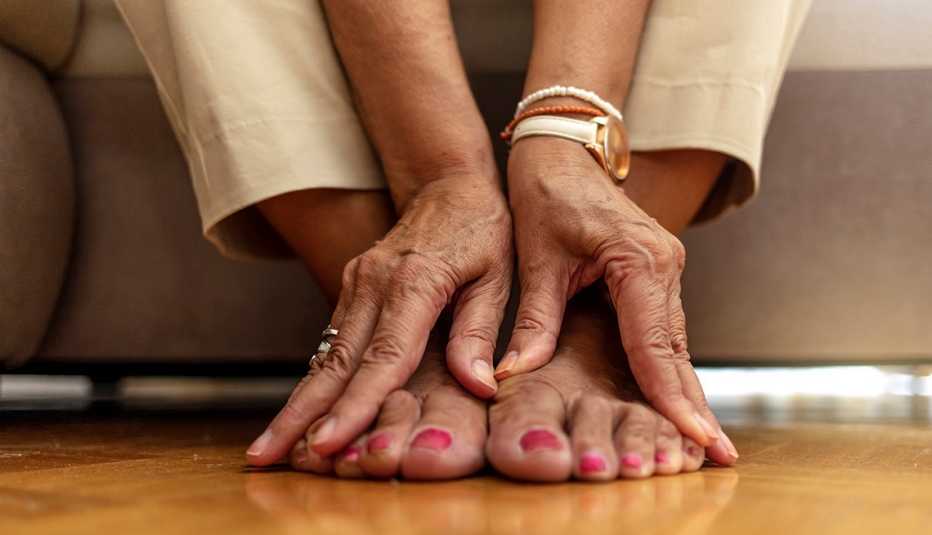10 Things Your Toes Could Say About Your Health

You probably don’t think of your toes much unless someone steps on them. But your toes and toenails can tell you a lot about your health.
They can indicate bacterial, yeast or fungal infections; medication side effects; trauma; autoimmune disorders; chemical exposure; diabetes; kidney or liver disease; and even skin cancer, says Ashley Dikis, an assistant professor at Des Moines University College of Podiatric Medicine and Surgery.
“Our feet and toes are also the body parts that are furthest from the brain and heart, so underlying health issues generally manifest themselves in feet and toes first,” says Stephanie Wu, dean of the Scholl College of Podiatric Medicine at Rosalind Franklin University of Medicine and Science in North Chicago, Illinois.
To better understand this, think of a tree, Wu adds. If the brain, spinal cord and heart are the trunk, the outer branches and leaves represent the small nerves and blood vessels in the feet and toes. Just as changes in leaf color or early leaf drop can signal tree disease, changes in the appearance or sensation of toes can indicate underlying health issues.
However, not all doctors value the importance of your feet and toes when you go for a checkup.
“I’ve had patients go for a skin check, and they’re not even told to take off their socks and shoes,” says Bryan C. Markinson, chief of podiatric medicine and surgery in the Department of Orthopedic Surgery at the Icahn School of Medicine at Mount Sinai in New York.
If you’ve observed any changes in your toes or toenails, keep an eye out for these 10 signs that could indicate an underlying health condition.
1. Concave toenails
Possible condition: Anemia
Some people are born with concave or “spoon” nails. But a case that appears out of the blue warrants a check.
If your toenails look scooped out, with an indentation big enough to hold a drop of water, it’s often a sign of anemia, Markinson says. That scooped-out nail could also be pointing to a range of autoimmune disorders or hypothyroidism.
2. Tingling, burning or numbness in toes
Possible condition: Diabetes
Tingling, numbness or burning are classic signs of peripheral neuropathy caused by diabetes, Markinson says. High blood sugar injures nerves throughout the body, particularly the extremities. Loss of sensation is a key factor in the development of diabetic foot infections, Markinson says.
In other instances, tingling, numbness and burning may be a result of chemotherapy treatment or chemical exposure (like Agent Orange), alcohol abuse, vitamin deficiencies (particularly vitamin B12), hypothyroidism, end-stage renal disease, certain viral infections like HIV, or of a pinched or irritated nerve in your lower back, Dikis says.
Patients experiencing symptoms in both their fingers and toes are likely dealing with a systemic condition. In contrast, numbness, tingling, or burning in just one toe or foot is typically due to trauma or nerve compression, she adds.
To read about other things your toes could say about your health, from AARP, CLICK HERE.
